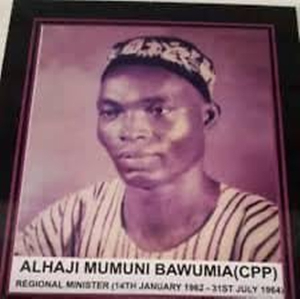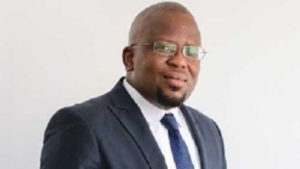NATIONAL RECONCILIATION COMMISSION
24TH NOVEMBER 2003RE: PUBLIC TRIBUNALS AND THE NRC
We have read the above-titled article authored by John Okine (READ) on the features/articles page of the website, www.ghanaweb.com. This article has also been carried in the “Network Herald” and the “National Democrat” and we deem it appropriate to correct the misinformation contained in the article.
John Okine in his article takes issue with the chairman’s submission on the tribunal system, links it with the National Reconciliation Commission peddles untruths about the Commission and concludes by impugning the integrity of the Commission. This is very unfortunate.
ALLEGATIONS AGAINST THE NRC
First, John Okine alleges that, in the conduct of the NRC’s proceedings, there is lack of cross-examination. This is untrue. The opportunity exists in the Commission’s hearings procedure not only for the cross- examination of witnesses but also for both petitioners and respondents to testify or give evidence. It is precisely for this reason that Mr. B.T. Baba, WO1 Nkwantabisa, Commander (rtd) Assassie-Gyimah, Brigadier Agyemfra, Nana Ato Dadzie, Mr. Jack Bebli and other persons or their counsel were allowed to cross-examine petitioners even before they testified either in defence of allegations levelled against them or to accept responsibility and to apologise. More importantly, the Commission has provided counsel at its expense to indigent persons against whom allegations have been made and who have appeared to respond to those allegations.Second, concerning the admission of hearsay evidence, we wish to point out that the Commission is a quasi-judicial investigative body. As such, it is not bound by the normal rules of evidence especially those concerning the admissibility of hearsay evidence applicable in the courts of law. It is a trite principle in the common law system that administrative tribunals may receive and weigh evidence it considers necessary and reliable with the important caveat that hearsay evidence cannot be the sole basis for an adverse finding against a person.
Third, we are surprised at Mr. Okine’s categorical assertion that the Commission’s investigators do not crosscheck statements filed and provide feedback to the Commissioners. The fact is that they carry out preliminary investigations into cases before the Commission grants witnesses a hearing. On many occasions, the chairman or other members of the Commission have read responses from persons against whom allegations have been made in petitions and asked the petitioners to comment. The records are there for Mr. Okine’s verification. Furthermore it is worth noting that the hearings are also part of the investigative processes of the Commission. That is why Commissioners ask questions to elicit further clarification into the matter they are hearing. Even after the hearing further checks are carried out.
It is clear that Mr. Okine has assumed that the determination of cases brought before the Commission ends after they are heard. This is far from the truth. Investigations continue after the hearings to ensure that the Commission’s findings will be based on the truth.
Fourth, on the comments made by Commissioners during the hearings, he states in the article “… these comments etc, by law presupposes that the evidence has been admitted as the truth therein.” By this he has erroneously put out information to the effect that the comments of the Commissioners are a ruling in the matter they are hearing. If this were so the chairman would not after every hearing tell the witness that the Commission would look further into the case they have heard and make appropriate recommendations.
On the same subject matter, it is clear that Mr. Okine is oblivious to the fact that the Commission is victim-centred. As a victim-centred institution, more often than not the comments of the Commissioners during hearings refer directly to the alleged victim and not the case being heard. A comment like “I sympathise with you” is made by a Commissioner more because a witness has broken down in tears at that material moment rather than that the Commission has accepted the evidence. In the same vein “I congratulate you for your courage” refers to the fact that a witness was courageous enough to appear before the Commission and tell his story. The empathy shown is to encourage witnesses to put behind them the bitterness and pain so as to get on with their lives. Perhaps if Mr. Okine stops looking at the Commission as a court but rather as a fact-finding body, which is also intended to facilitate healing, he would appreciate its work better and realize that the Commission is not operating as a court or an appeal court for that matter.
It is unfortunate that Mr. Okine alleges the Commission “….gleefully accepted to be a true legal position” the submission by one witness on military take-overs. There is not a shred of evidence in the Commission’s work to lend credence to the view that the Commission does not recognize military regimes as de facto governments. If Mr. Okine, who in this article professes to know so much about the Commission’s work, had closely followed the proceedings he would have noted through the interventions made by some of the Commissioners, e.g. Prof H. Mensa-Bonsu, that the Commission recognizes military regimes as de facto governments. In this regard it is instructive to refer to the question put by Prof. Mensa-Bonsu to Lt. Owusu-Gyimah, who in his testimony to the Commission had described military governments as illegitimate. She questioned him as to whether the pardon granted him by the National Redemption Council is illegitimate.
ALLEGATIONS AGAINST THE CHAIRMAN
We find the claims made in this write-up on the chairman’s submissions on tribunals and the Commission’s work totally incongruous for these reasons:- The submissions under reference covered the work of tribunals and not commissions.
- Tribunals operate as courts, not as commissions or quasi-judicial bodies as the NRC.
- To suggest that the 7 other eminent persons may not have any contribution to make towards the Commission’s findings because they are not lawyers is unfortunate. The Commission is required by its enabling statute to use its collective appreciation of the cases and the evidence, as well as its collective wisdom and experience in making findings in the petitions it receives and hears. Furthermore, decisions of Commission are regulated by Section 6(4) of the NRC Act 2002 (Act 611) which provides that: “Decisions of the Commission shall as far as possible be taken by consensus and in the absence of consensus, by majority vote of the members, except that where there is a tie in the vote the chairperson shall have a casting vote”. In addition, beyond the hearings, the other members chair various committees of the Commission, which are researching into the role civil society institutions and the security services played in the abuses the Commission is investigating. Is the writer suggesting that all the work done by these committees will be thrown overboard or overruled by the chairman because they are not lawyers?
Is Mr. Okine suggesting that the Chairman does not appreciate this? Could it be that there is more to what the chairman said but Mr. Okine has selectively put out facts in this article to suit his purpose?
ANNIE ANIPA
DIRECTOR PUBLIC AFFAIRS
THE WEBMASTER,
GHANAWEB.
THE EDITOR,
NETWORK HERALD, ACCRA.
THE EDITOR,
NATIONAL DEMOCRAT, ACCRA.














